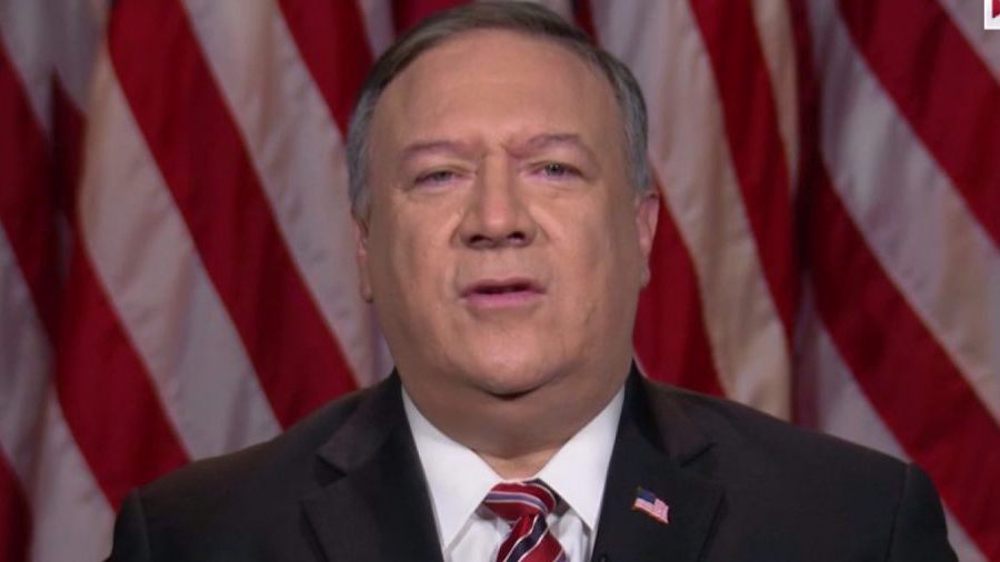Hamas, Islamic Jihad slam new round of US sanctions against Iran
Palestinian Hamas and Islamic Jihad resistance movements have denounced the imposition of a new round of sanctions by the United States against Iran, saying the administration of President Donald Trump does not seek global stability, but rather tries to exacerbate tensions in the world.
“The incumbent US administration is a rogue one, which does not pursue stability in the world, but seeks to undermine efforts aimed at defusing tensions instead,” Dawood Shihab, a senior Islamic Jihad official in Gaza, said on Monday.
He added, “US sanctions on Iran are a sign of US bullying, contravene international principles and run counter to the visions of other member states of the UN Security Council (UNSC).”
“All world countries have rejected anti-Iran sanctions and consider US policies to be short-sighted and not characterized by wisdom and discretion,” Shihab highlighted.
For his part, top Hamas official Ismail Radwan stated that the new US sanctions on Iran fall within the context of a new campaign of aggression against the Islamic Republic and the axis of resistance and serve the Zionist-US project in the region to advance Trump’s controversial plan for the Middle East.
Radwan said Iran is subjected to US sanctions because it supports resistance groups, emphasizing that such measures will not stop Tehran from backing the Palestinian cause and resistance movements.
The senior Hamas official then reiterated that his movement will stand by Iran in the face of US sanctions, warning the Israeli regime and the US administration against the continuation of their fiendish policies against the Islamic Republic.
On Monday, the Trump administration announced a slew of fresh sanctions and additional measures in support of Washington’s maximum pressure campaign against Iran.
It named 27 individuals and entities, including officials at the Iranian Defense Ministry, the Atomic Energy Organization of Iran and anyone found trading in conventional weapons with Tehran.
Just two days earlier, the United States announced that it was unilaterally re-imposing the multilateral “UN” sanctions on Tehran through the so-called snapback mechanism -- a move that drew outright criticism and opposition from the other signatories to the Iran nuclear deal, including the three European countries Germany, UK and France, as well as the UN.
Other UN Security Council members have repeatedly said Washington does not have the authority to use that mechanism as it is no longer a participant state to the Joint Comprehensive Plan of Action (JCPOA) following its withdrawal from the multilateral nuclear agreement with Iran in May 2018.
American officials said they were enforcing an indefinite ban on weapons sales to Tehran, which allows for sanctions on any international companies or individuals that seek to violate the embargo.
Last month, the Trump administration suffered an embarrassing loss as it failed to keep the UN arms embargo in force against Iran through a resolution at the UNSC.
The ban will be lifted on October 18 under UNSC Resolution 2231, which endorsed the JCPOA.
VIDEO | Australians rally for Gaza ahead of Christmas festivities
VIDEO | Attacks on Sana'a
Iran reports further drop in annual inflation rate in December
Israel indicts two settlers over suspected spying for Hezbollah
VIDEO | Vietnam: current prosperity ...
Iran: US airstrikes on Yemen war crimes, violation of international law
Yemeni armed forces down F-18 fighter jet, repel US-UK attack: Spokesman
Iran warns against US-Israeli plot to weaken Muslims, dominate region




















 This makes it easy to access the Press TV website
This makes it easy to access the Press TV website